How one Yazidi girl fled the clutches of her Isis captors and embarked on the winding road to recovery
Abducted, locked away, all but starved, raped… then, a dramatic escape
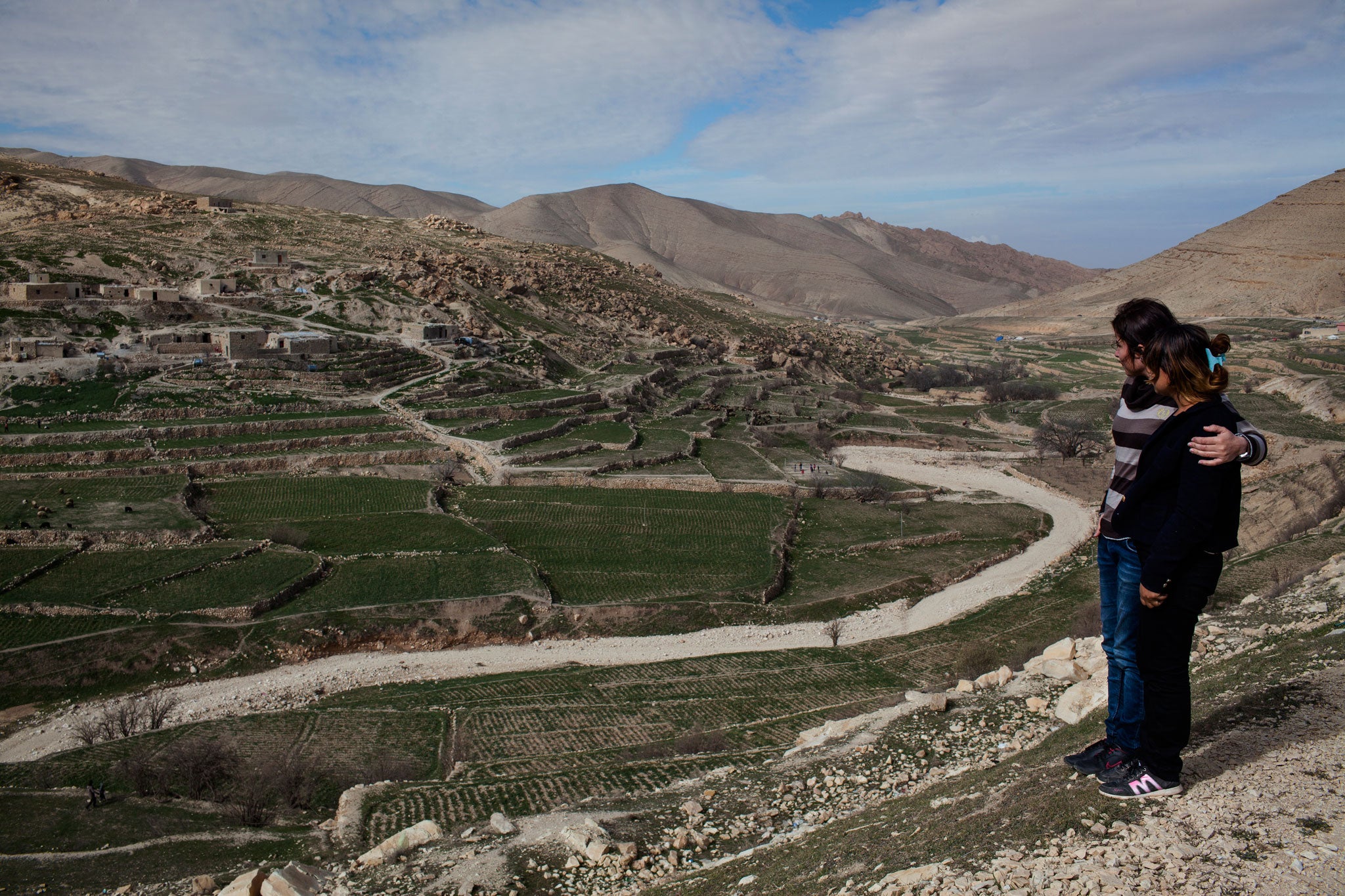
Your support helps us to tell the story
From reproductive rights to climate change to Big Tech, The Independent is on the ground when the story is developing. Whether it's investigating the financials of Elon Musk's pro-Trump PAC or producing our latest documentary, 'The A Word', which shines a light on the American women fighting for reproductive rights, we know how important it is to parse out the facts from the messaging.
At such a critical moment in US history, we need reporters on the ground. Your donation allows us to keep sending journalists to speak to both sides of the story.
The Independent is trusted by Americans across the entire political spectrum. And unlike many other quality news outlets, we choose not to lock Americans out of our reporting and analysis with paywalls. We believe quality journalism should be available to everyone, paid for by those who can afford it.
Your support makes all the difference.Evening deepened over the Islamic State-held city of Fallujah as Amel, 18, and Jwan, 17, peered out of the window of a two-storey villa, watching the passing cars and wondering how they would escape unseen. "If I'm martyred," their Isis captor had told them before he went out to fight, "you will die in this house because I have locked the door."
The girls scoured the cupboards for anything that might help them; Jwan grabbed a small, jewelled watch left by the house's previous owners, a family displaced when Isis took control of the city last year.
"I thought maybe I could flee without Daesh [the Arabic acronym for Isis] seeing me, but perhaps I would be caught and would have to stay there," says Amel (an alias, meaning "hope" in Arabic, to protect her identity). Short, with a round face and light wavy, hair, she tells her story in a quiet but determined voice. "I had many bad thoughts."
Using a stolen phone, the girls called their families. "We can break the door open," Amel told her relatives, "but we don't know where to go." Their families sent a driver who circled the city, looking for them; as soon as the girls were able to speak to him via the phone, they acted: "We looked for a knife and broke the lock on the door." After 20 days in Mosul and a week in Fallujah, they were free.
They were driven to a safe house, before being hidden in the driver's house the next day. But this was only the beginning. The recovery process for Amel and Jwan will be much longer and harder.
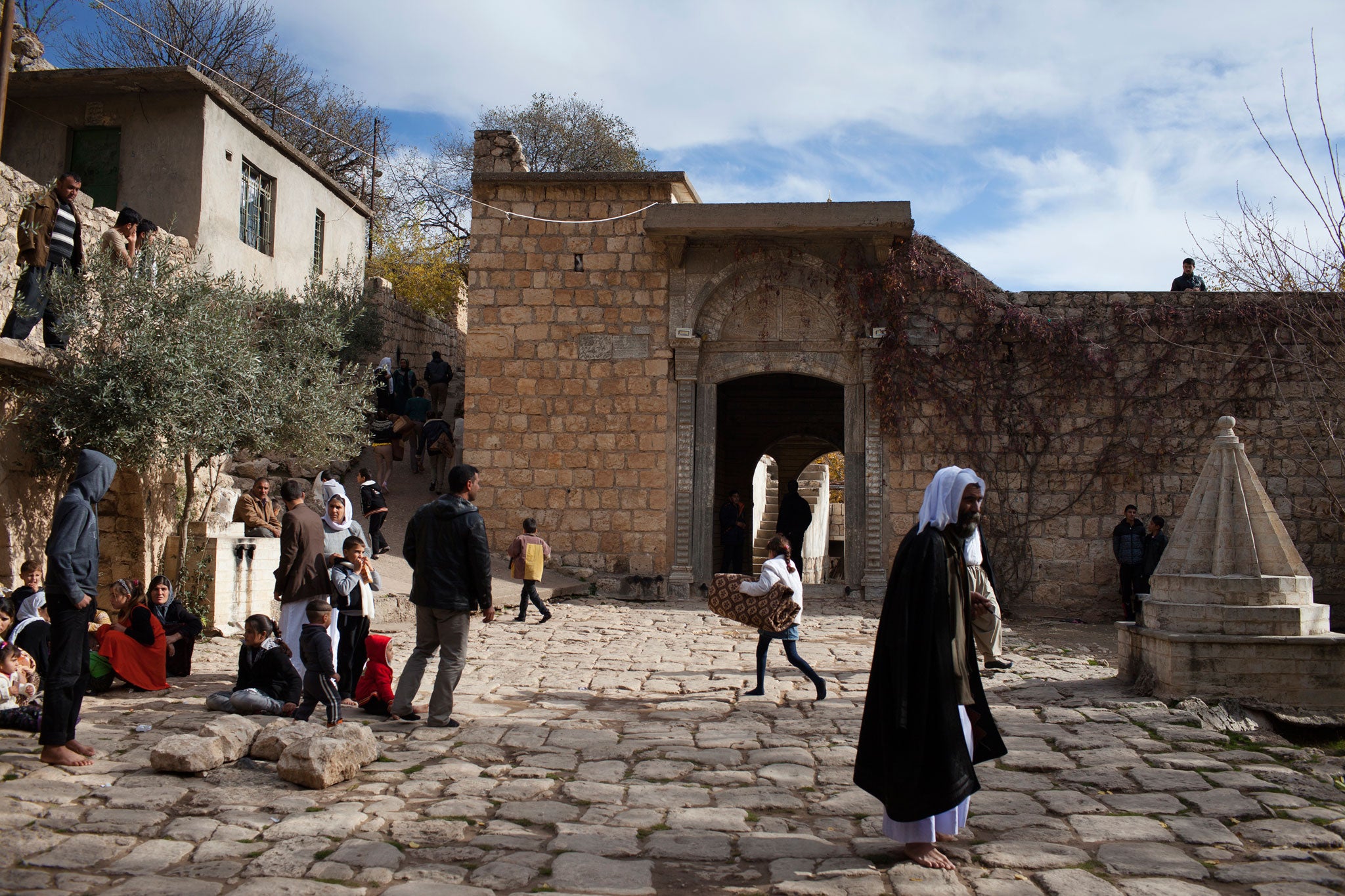
The girls are part of the Yazidi minority religion whose faith shares elements of Islam, Christianity and Zoroastrianism, and whose adherents worship an angel in the form of a peacock. Hundreds of thousands of Yazidis live in northern Iraq, home to the holy, conically domed temple in Lallish; last summer, Isis branded them pagans, singling them out for murder, rape and enslavement as they tore through the region.
While the world's media focused on the plight of the tens of thousands of Yazidis trapped on Sinjar mountain, Amel, Jwan (also an alias) and many other Yazidi women and girls were captured by men loyal to Isis, who bragged in a propaganda video about enslaving them. One man said to camera, "Today is the slave market, God willing." Amel's story is one of many told by her community of displacement, horror and slavery. Yazidis say 4,000 of their women and girls are in the hands of Isis. Raped and abused, many have also been forced to marry and to convert to Islam.
On the day of their capture, in early August last year, Amel and Jwan had gathered under the shade of trees with their relatives a few miles from Tel Azer, a small town near Sinjar in Iraq's north-west. It was hot, and Amel and her older brother Khero had been walking hand-in-hand, chatting. "Families came to the trees and the water near the farms to drink and wash," recalls Jwan's older brother, Haso. Then, just before noon, a group of bearded fighters stormed the resting families. They were tall and spoke in Arabic. Amel says that at first, "They told us they wouldn't do anything to us. 'We will just bring you to a house,' they said."
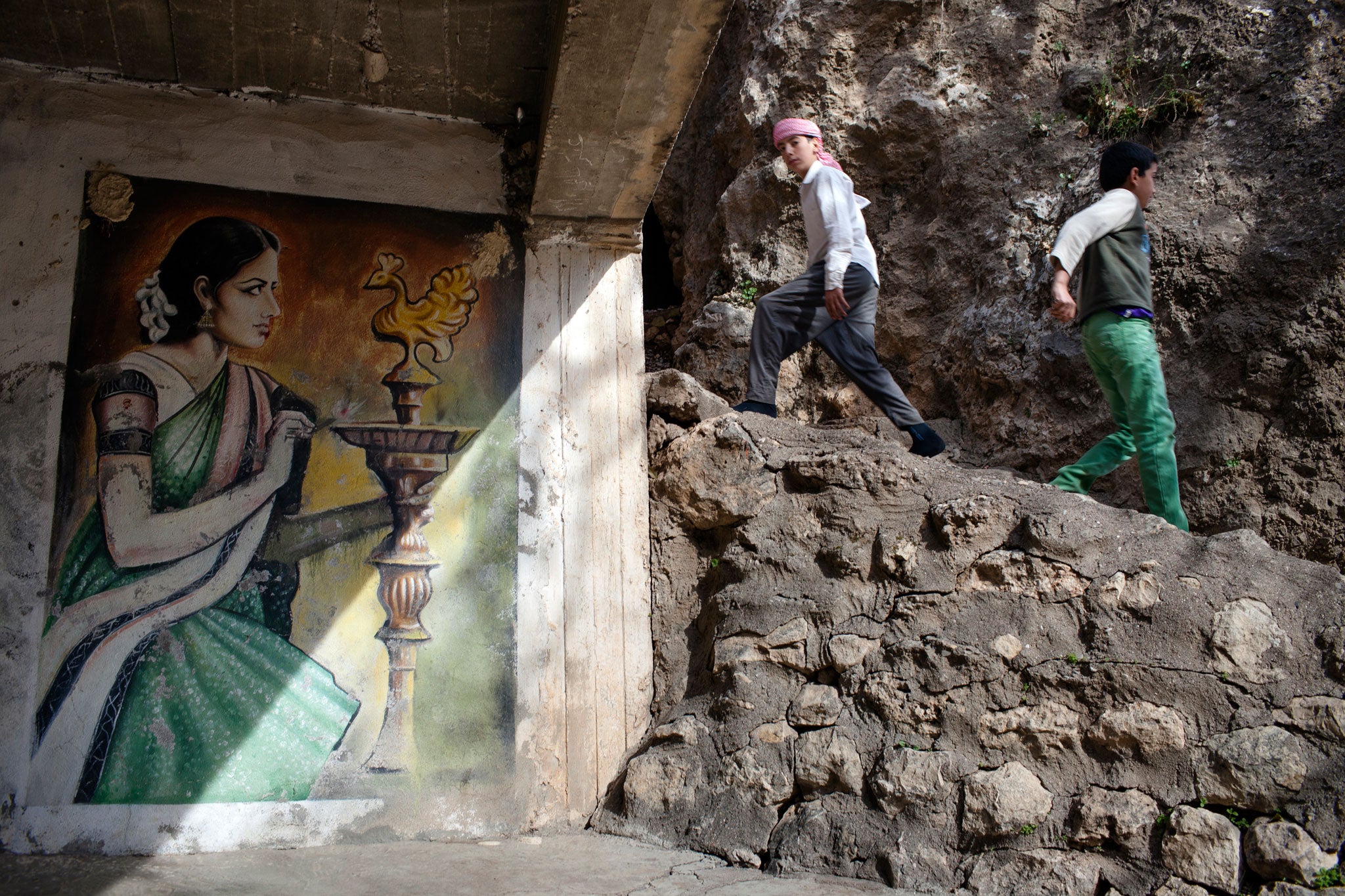
The Isis fighters separated the women from the men. "They took my brother," says Amel. "He called out to me; I tried not to cry. He wanted to save me." Khero had married six months earlier. His wedding photo shows him with a loosened collar and red tie, reaching out to touch the cheek of his wife. "Later, my mother found him with many other dead men," says Amel, looking down. "She tried to talk to him but he didn't respond."
From Tel Azer, Amel and Jwan were taken with around 50 other women and girls to Mosul, Iraq's second-biggest city, where last summer Isis's leader, Abu Bakr al Baghdadi, declared a caliphate stretching across plundered parts of Iraq and Syria. Inside a large, uncomfortable house, the girls were divided into groups. "For 20 days I didn't go outside or see the sun or have any fresh air," Amel says. She lost count of how many others were there. When fighters came to take Jwan away, she cried and asked for Amel. Together, they were given as gifts to Isis fighters in Fallujah.
Abu Hassan and Abu Jaffa, who Amel says was an Isis commander, left the house every evening to fight. "We were given food once a day and little drinking water. We couldn't sleep because we were scared." The girls were raped in the same room as each other, Amel adds quietly. "Sometimes I'd cry… I'd say, 'I don't like it here,' but Abu Hassan said: 'If you say that, I will separate you from Jwan. If you want to be freed, call your father and mother, tell them to convert to Islam and after that I will give you back.'"
On escaping their captors, the girls wore long black abayas and niqabs and travelled to Baghdad, where they were reunited with other Yazidis before flying home to the Kurdistan region. Jwan's mother recalls being reunited with her daughter: "I couldn't stand up and walk, I was so happy." Her father bought a sheep to slaughter, in celebration.
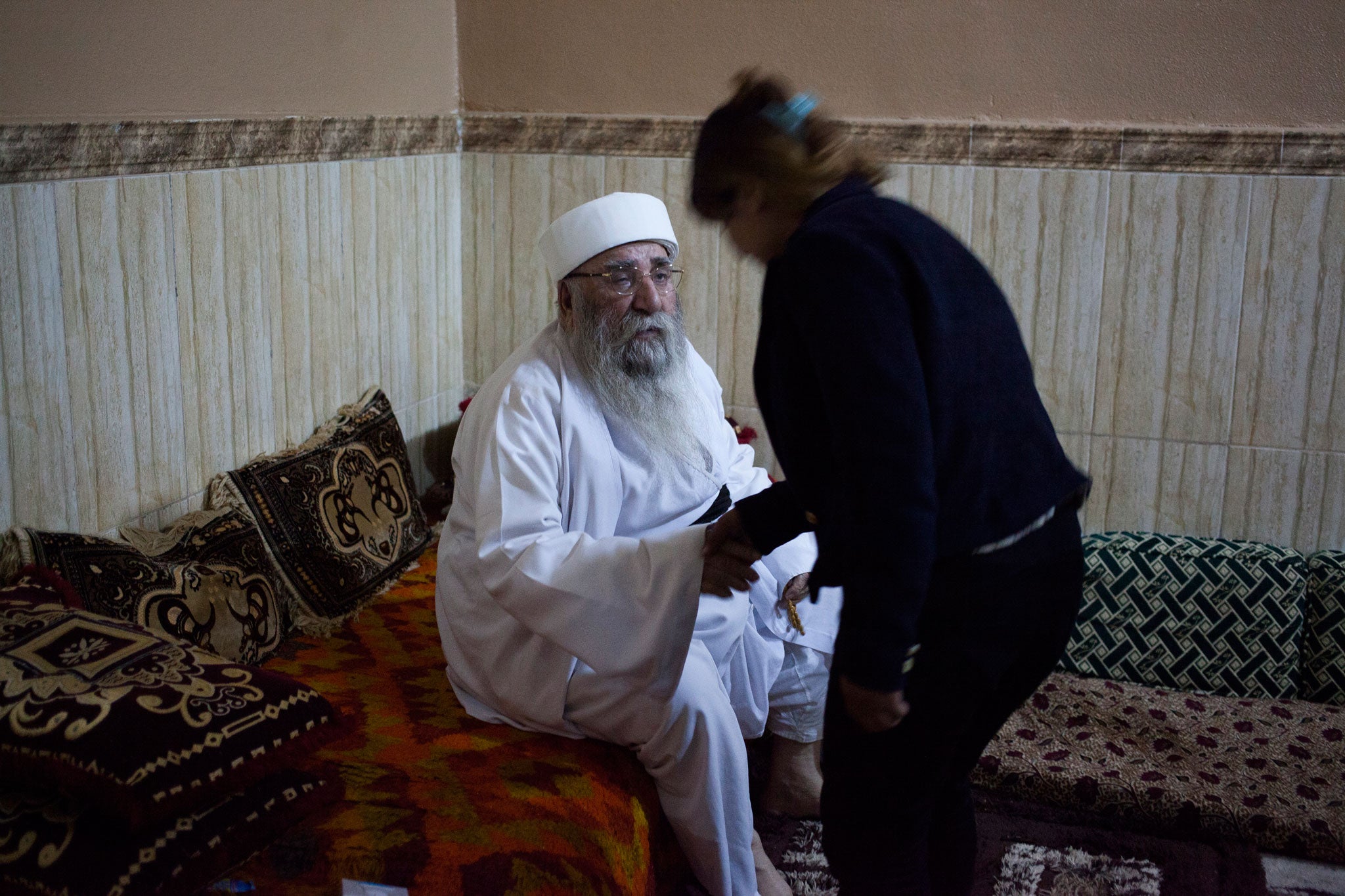
At home, the girls faced new challenges: their families live in camps for the displaced where rumours and teasing are rife. Yazidi culture is fiercely traditional; those who convert to other religions are cast out. But because of the scale of this new trauma, Yazidi leaders have publicly embraced escapees from Isis captivity who in many cases have been raped, tortured and forced to convert to Islam. "We know these women were forced [to convert] so we respect them. They didn't give consent," Ido Baba Sheikh, the brother of Baba Sheikh, the Yazidi spiritual leader, has said.
After her return, Amel would faint when asked to retell her story. She did not return to school, too haunted by what she had been through. Compounding her sadness, she says other Yazidis in the camp "speak badly about me; they say I am not good, that I am not a virgin". Amel and Jwan did not know each other well before their ordeal, but afterwards kept in close contact, calling or texting each other every day.
Five months on, Amel is in a small town north of Mosul to meet Baba Sheikh. It is evening, and few remain in the courtyard of his home. He wears white robes and sits cross-legged at the end of a long room where Yazidis come to pay their respects. Amel kisses his hand and asks his advice on dealing with the unkind remarks. He tells her to be brave and strong.
The next day, cloaked by the chill of dawn, Amel pads in stockinged feet into the large hall of the Lallish temple. There is snow on the surrounding mountains and here in the base of the valley, the stone paving slabs outside are slippery and damp. She kneels and kisses the holy threshold. Her thoughts are constantly drawn to Sinjar and to what she has lost. "I think about when we used to go to the temple. I remember the road from Sinjar to my home," she smiles, and tells me about a recent trip to Sinjar Mountain on a road retaken from Isis. "It was like going back home, but I remembered all the bad experiences because I was very close." Before she left for the two-day trip, her mother worried about losing her again, "Please come back safely, otherwise I can't live," she told Amel.
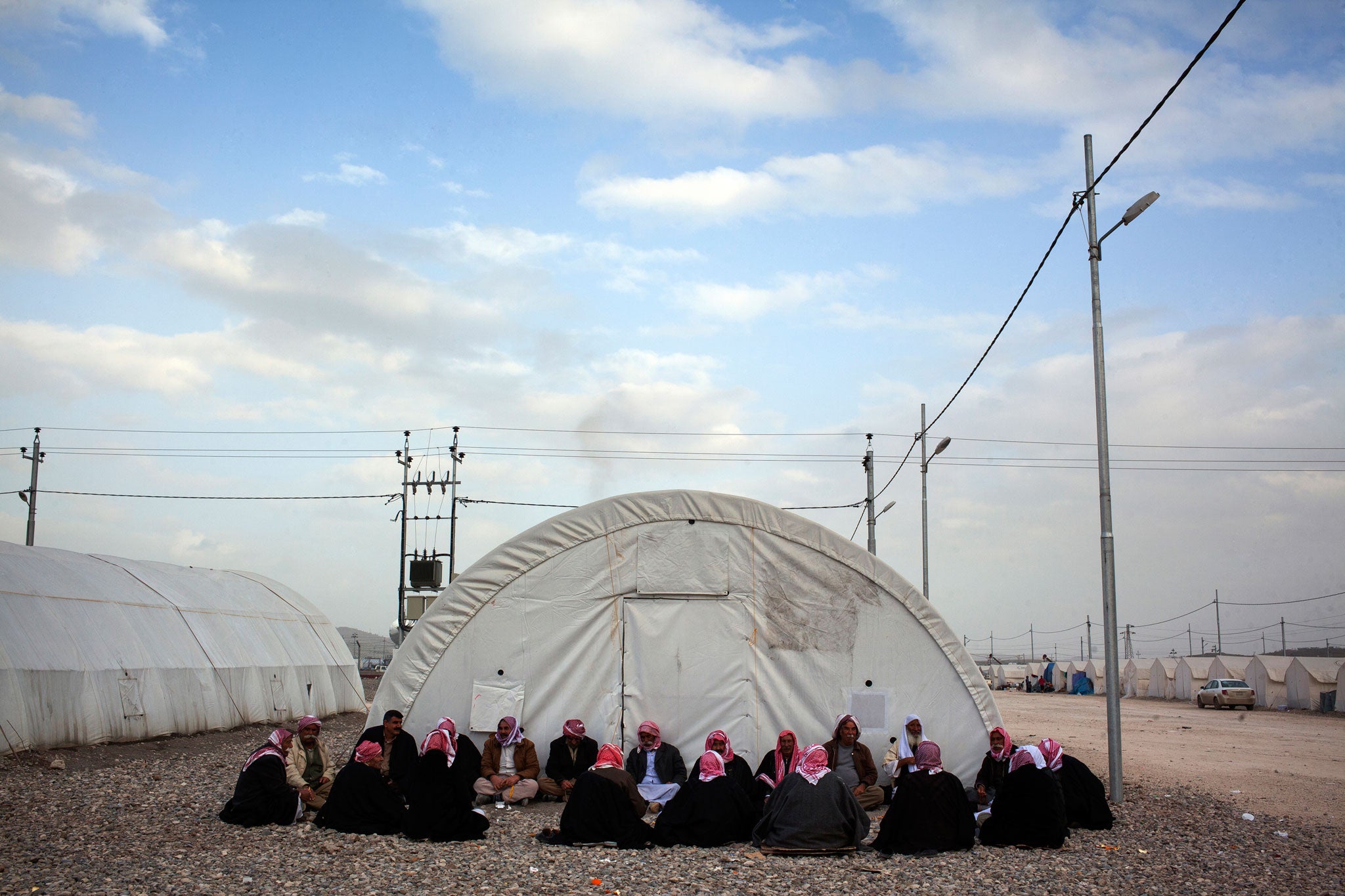
A month later, Amel is waiting in the lobby of a five-star hotel in Erbil, capital of the Kurdistan region. Her hands are adorned with small golden rings and she wears a loose-fitting, green and white polka-dot blouse. She is setting out for Stuttgart, where she will receive permanent residency, education, and medical and psychological help, under an initiative for traumatised Yazidi girls and women introduced by the German state of Baden-Württemberg. Jwan will go with her to receive the same care.
At 5ft, Amel looks lost among the German officials and minders in the hotel's restaurant, as she sips water and shows me her jewellery. To the tinkling of teacups as the buffet trays are packed away, she says that, "I want to go to school, to see [Germany], the people." But, she adds, if her parents miss her too much, she will return to Kurdistan.
Sitting up, she says she is not afraid of the journey ahead. "Before, I was sometimes scared of things in life. Now, after this torture, I am not scared of anything." Yet later, showing me Khero's wedding pictures, she breaks down into her small, cupped hands; her bravado slips away and she is a scared child again, traumatised and on the cusp of an immense journey.
As soon as they returned from their ordeal, the girls went to Lallish to be blessed and cleansed in the holy spring below the temple. Inside, Amel bent down in the dank, underground chamber and doused herself four times. "I prayed," she says now. "I said this is not our fault. We are not guilty. It is because of Daesh, and we tried our best. I asked for forgiveness."
Join our commenting forum
Join thought-provoking conversations, follow other Independent readers and see their replies
Comments